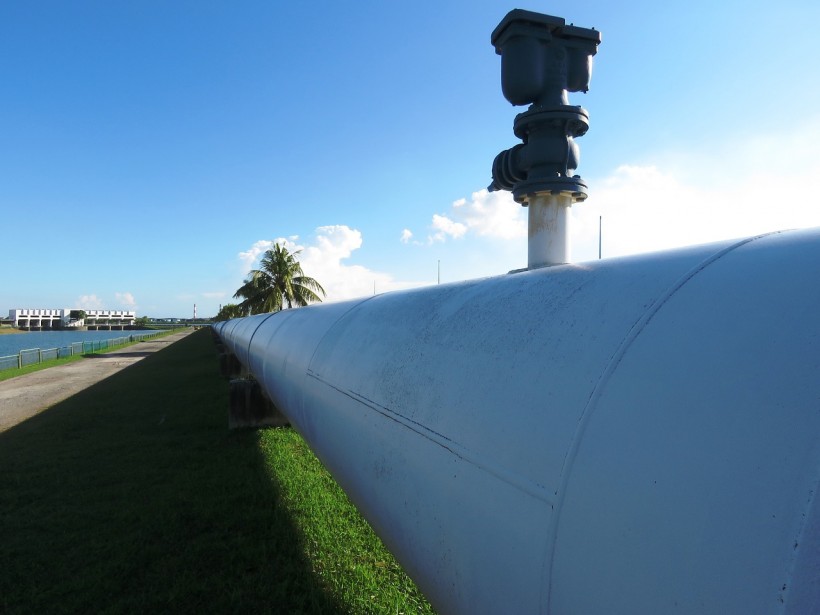Global Fuel Theft Epidemic Demands Urgent Attention

Colombia is currently experiencing a surge in theft from its oil pipelines, as criminal gangs seek sources of gasoline to process in clandestine refineries and subsequently utilise to manufacture cocaine. The cartels have turned to domestic oil supplies, since those arriving from Venezuela have all but dried up as a consequence of the country's economic collapse. Indeed, surplus gasoline is even being smuggled into Venezuela for sale, in a reversal of the historic status quo.
The illicit fuel trade is a farther-reaching issue than many people realize. In fact, a report from auditors EY estimates that a cumulative $133 billion is lost from government coffers every year due to the black market for gasoline and diesel, while the underground trade also has ramifications for the health of local populations and environments, as well as funding criminal activities. As such, a dedicated solution is necessary to curb the practice, with high-tech fuel marking programs already having demonstrated tangible results in places like the Philippines.
Role reversal
While the illicit fuel trade is a worldwide problem, the situation is particularly acute in Colombia at the moment. There's a long history of fuel smuggling across the Venezuelan-Colombian border, though historically petrol was more likely to flow in the other direction. For years, Venezuelan subsidies kept the price of oil in the country outrageously low, even as costs spiralled elsewhere. This instigated a cross-border black market with Colombia, wherein opportunistic smugglers would cart supplies west and sell them at for a handsome profit. However, the political and economic turmoil engulfing Caracas at present - exacerbated by aggressive sanctions from the USA and a drop-off in aid from ally Iran - has destroyed the Venezuelan oil industry, forcing Colombian cartels to find the gasoline they need from other sources.
Domestic pipelines have proved to be their main quarry. Theft of Colombian crude oil hit a six-year high in the first half of 2021, with an average of 3,299 barrels stolen each day. That has meant severely reduced tax revenues for the Colombian government, and has fuelled the rampant drug trade, damaging industry infrastructure (with pipeline repairs running to the tune of $11 million in 2020) and claiming many human lives in the process. At least 20 people have been killed during explosions which occurred during the transfer of the contraband in Cúcuta, the Colombian border town which acted as the main smuggling hub.
Global epidemic
Unfortunately, this phenomenon of fuel theft is one which afflicts nations all over the world, causing significant impacts on local communities and national economies and feeding all kinds of illegal practices. For example, it has been linked with human trafficking in places like Thailand and Libya, insurgency and armed militia in Nigeria and Mozambique and terrorist activities in somewhere as supposedly peaceable and progressive as Ireland. Fatalities are not uncommon, either, with 137 people killed as a result of an illicit pipeline tap in Mexico in January 2019 and dozens of others dying in similar incidents in the country and beyond.
Attempts to clamp down on fuel theft have, thus far, been largely unconvincing. Since coming to power in late 2018, Mexican President Andrés Manuel López Obrador made it a priority to tackle the illegal trade and initially made encouraging strides toward that goal. By the end of last year, the number of barrels lost had fallen by over 90%, prompting AMLO to declare the war on the illicit fuel trade won. His words appear to have been slightly premature, however; illegal valves found on pipelines belonging to the state-owned Pemex company were up 9.5% in the first four months this year, while seizures of illegal hydrocarbons also sprang up from 2020 figures in several states in the country.
Fuel marking hits its mark
The trouble seems to lie with policing the pipelines themselves. Thieves are becoming ever-more ingenious at avoiding detection, with sophisticated hot and cold taps, underground tunnelling and advanced siphoning techniques being used to great effect. If authorities can't prevent theft from occurring at source, how can they clamp down on the black market? According to the principles of fuel marking, by ensuring that fuel can be traced all along its supply chain.
Fuel marking involves the injection of refined biomarkers into legitimate crude oil product before its transfer, which means that it can later be tested for authenticity, quickly and efficiently at any point in the supply chain. The government in the Philippines has implemented such a program shepherded by SGS and Swiss security firm SICPA, with startling results. Within 15 months of the fuel marking scheme's roll-out, the Philippines had successfully marked 100% of the country's oil inventory. To date, the Philippines' fuel marking programme has resulted in the collection of almost $6 billion in taxes and duties, which is equivalent to over 30 billion litres of fuel products in the two years the system has been in place. It has also facilitated the capture of adulterated goods, with 6,357 litres of unmarked diesel found at one Petromobil gas station in the country and several others under investigation.
Tried and tested
The recent advances in technological and analytical capabilities mean that fuel marking is now a force to be reckoned with for smugglers and thieves the world over. The upsurge in pipeline taps in Colombia is certainly a stark reminder of the task at hand, but given that the illicit fuel trade is a problem affecting nations of all sizes and stages of development, it's high time that governments everywhere began pursuing concerted measures like fuel marking to turn the tide of a war they have been losing for far too long.
Subscribe to Latin Post!
Sign up for our free newsletter for the Latest coverage!














